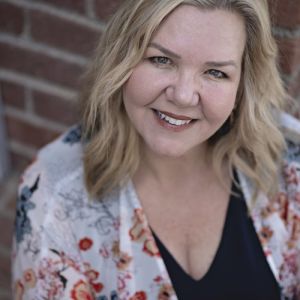San Luis Obispo, California, United States
The Central Coast Treatment Center
Unclaimed
Unclaimed
This provider hasn’t verified their profile’s information. Are you the owner of this center? Claim your listing to better manage your presence on Recovery.com.
Joint Commission Accredited
The Joint Commission accreditation is a voluntary, objective process that evaluates and accredits healthcare organizations (like treatment centers) based on performance standards designed to improve quality and safety for patients. To be accredited means the treatment center has been found to meet the Commission's standards for quality and safety in patient care.
Provider's Policy
They partner with a variety of national and California-based insurance companies.

Contact The Central Coast Treatment Center
Connect with The Central Coast Treatment Center by calling them directly.
Are you the owner of this center?
Claim this center
About The Central Coast Treatment Center
Central Coast Treatment Center specializes in treating eating disorders for individuals of all ages. They offer partial hospitalization (PHP) and intensive outpatient (IOP) programs that provide structured, day-based care while allowing clients to stay connected to daily life. Their philosophy centers on helping clients reconnect with the wisdom of the self, where authenticity and self-worth come from within and not external achievements.
Strengthen Identity Through Practice
The center blends evidence-based and holistic therapies, including individual and group counseling, nutrition support, yoga, and experiential practices like grocery shopping and meal outings. Their attachment-based model emphasizes healing the client’s relationship with their body and identity, offering compassionate guidance through every stage of recovery.
Enhance Support Systems
The center also provides resources and education for families, recognizing the vital role they play in a loved one’s recovery and the importance of support without blame. Family and partner support groups, conscious movement, and hands-on meal planning are offered to help rebuild positive relationships with food and body through meaningful family involvement.
Read More

Insurance Accepted
Provider's Policy:They partner with a variety of national and California-based insurance companies.

Center Overview

Treatment Focus
You can get treatment for eating disorders at this center, helping you navigate symptoms, build coping tools, and restore your physical health under expert care.

Care Options






Treatment
Specializations
Anxiety
Anxiety is a common mental health condition that can include excessive worry, panic attacks, physical tension, and increased blood pressure.
Depression
Symptoms of depression may include fatigue, a sense of numbness, and loss of interest in activities. This condition can range from mild to severe.
Eating Disorders
An eating disorder is a long-term pattern of unhealthy behavior relating to food. Most people with eating disorders have a distorted self-image.
Trauma
Some traumatic events are so disturbing that they cause long-term mental health problems. Those ongoing issues can also be referred to as "trauma."
Approaches
Evidence-Based
A combination of scientifically rooted therapies and treatments make up evidence-based care, defined by their measured and proven results.
Experiential
Expressive tools and therapies help patients process past situations, learn more about themselves, and find healing through action.
Family Involvement
Providers involve family in the treatment of their loved one through family therapy, visits, or both–because addiction is a family disease.
Wellness
Wellness philosophies focus on the physical, mental, and spiritual wellness of each patient, helping them restore purpose with natural remedies.
Therapies
1-on-1 Counseling
Patient and therapist meet 1-on-1 to work through difficult emotions and behavioral challenges in a personal, private setting.
Meditation & Mindfulness
A practiced state of mind that brings patients to the present. It allows them to become fully aware of themselves, their feelings, and the present moment.
Trauma-Specific Therapy
This form of talk therapy addresses any childhood trauma at the root of a patient's current diagnosis.
Experiential Therapy
With this approach, patients heal by doing. Therapists help patients process difficult emotions to speak, using guided activities like art or dance.
Nutrition Counseling
Nutritious food helps patients heal from within, setting them up for mental and bodily wellness as they learn about healthy eating.
Acceptance and Commitment Therapy (ACT)
This cognitive behavioral therapy teaches patients to accept challenging feelings and make the appropriate changes to reach personal goals.
Yoga
Yoga is both a physical and spiritual practice. It includes a flow of movement, breathing techniques, and meditation.
Conditions We Treat
Anxiety
Anxiety is a common mental health condition that can include excessive worry, panic attacks, physical tension, and increased blood pressure.
Depression
Symptoms of depression may include fatigue, a sense of numbness, and loss of interest in activities. This condition can range from mild to severe.
Eating Disorders
An eating disorder is a long-term pattern of unhealthy behavior relating to food. Most people with eating disorders have a distorted self-image.
Post Traumatic Stress Disorder
PTSD is a long-term mental health issue caused by a disturbing event or events. Symptoms include anxiety, dissociation, flashbacks, and intrusive thoughts.
Trauma
Some traumatic events are so disturbing that they cause long-term mental health problems. Those ongoing issues can also be referred to as "trauma."
Substances We Treat
Co-Occurring Disorders
A person with multiple mental health diagnoses, such as addiction and depression, has co-occurring disorders also called dual diagnosis.
Aftercare
Experience
Special Considerations
Healthy Meals are provided
Great food meets great treatment, with providers serving healthy meals to restore nutrition, wellbeing, and health.
Professional Staff

Cathy Meyer-Uyehara, FACHE, NHA
CHIEF EXECUTIVE OFFICER

Dr. Anita Johnston, Ph.D., CED-S
Director of eating disorder programming

Melissa Wheelock, LMFT
Clinical Director

Frannie Guida, BA
program coordinator
View More Team Members
We love hearing about your treatment experience
Help individuals and families seeking treatment by sharing your first-hand experience with this treatment provider. Review Guidelines.













